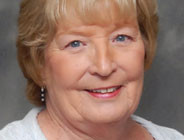President’s Message – July 2010
July 2010

According to the California Board of Registered Nursing (BRN) statistics, only 1% of nurses have issues that may prevent them from being competent, professional practitioners. Last year, the Los Angeles Times and ProPublica published an expose on the BRN. The story revealed some disturbing facts, including that, on average, it took the BRN over three years to investigate nurses who had been accused of misconduct. These nurses were able to remain in good standing with the BRN with a clean record, which in some cases resulted in continued or additional mistreatment of patients.
In an attempt to address the problems with the BRN, the California Senate introduced Senate Bill 1111, which would have reformed all statewide health-related regulatory boards. While we support reforming the BRN, there were three provisions in the bill we strongly opposed. First, the measure would have put nurses' home addresses on the Internet. This was modeled after physicians, who have their addresses posted online. However, doctors post their office addresses, whereas nurses do not have offices, and so would be required to make their home address public. Second, SB 1111 would have compelled mandatory reporting of any termination for cause or suspension of a nurse, even requiring a report when a nurse resigned before being fired. Third, the bill would have allowed California's governor to borrow BRN funds without any requirement to pay it back. Therefore, money nurses were paying to the BRN for licensing registration fees could have been used for projects unrelated to nursing. This would have meant that monies intended to make sure that misconduct reviews occurred in a timely manner would have had no guarantee of being available. Our Union's legislative team met with the bill sponsor's staff several times to discuss our concerns. In the end, the bill failed to pass out of committee and will not be voted on by the California Legislature unless it is reintroduced in a future session.
The failure of SB 1111 highlights why it is critical to have a governor who understands the vital role nurses play in the delivery of health care. Our State's governor has the power to appoint seven of the nine BRN Board members. The governor has a lot of influence on any legislation being crafted in the State Assembly or the State Senate. More importantly, the governor signs or vetoes every piece of legislation passed by both houses of the California Legislature. For all of these reasons, UNAC/UHCP will be keeping a close eye on the upcoming election for California's governor. You'll be hearing more from us on this issue in the future.
In solidarity,
Kathy J. Sackman, RN
